We dug through our archives to find the biggest (or our favorite) stories the Voice covered in our first 40 years.
***
May 5, 1970
Students strike, boycott classes
The Georgetown Student Senate called for a two-day boycott of classes to protest for a number of on-campus reforms, 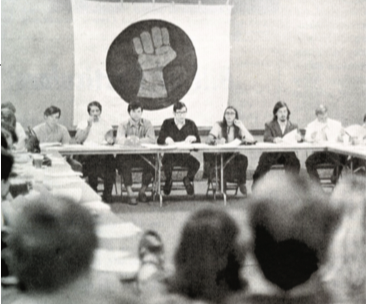 including the U.S. withdrawal from Southeast Asia. One day earlier, Ohio national guardsmen killed four unarmed students at Kent State University. The Voice editorial board lauded the Senate for its actions, encouraging the entire student body to participate. Because of the disruption, main campus faculty voted 156 to 13 to suspend classes for an additional week. The strikers called for the administration to reform the faculty tenure process, perform a study of the work conditions faced by non-academic staff, fight air pollution around Georgetown Hospital, and stop giving students academic credit for participating in ROTC, but their true legacy was kicking off a decade of student activism.
including the U.S. withdrawal from Southeast Asia. One day earlier, Ohio national guardsmen killed four unarmed students at Kent State University. The Voice editorial board lauded the Senate for its actions, encouraging the entire student body to participate. Because of the disruption, main campus faculty voted 156 to 13 to suspend classes for an additional week. The strikers called for the administration to reform the faculty tenure process, perform a study of the work conditions faced by non-academic staff, fight air pollution around Georgetown Hospital, and stop giving students academic credit for participating in ROTC, but their true legacy was kicking off a decade of student activism.
Feb. 6, 1973
Students protest tuition increases … with lemons
Students piled 6,000 lemons in front of the Office of the University President, then occupied by Rev. Robert Henle, S.J., to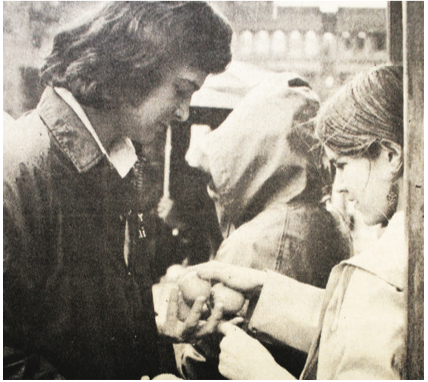 voice their opposition to their education “going sour.” The Lemon Day protest was in response to simultaneous $100 increases in the cost of tuition and on-campus housing. The rate raise brought tuition to $2,500, a four percent increase (the same increase seen from 2018 to 2019). Student Body President John Kennedy (COL ’73) wrote in a letter to the University Board of Directors that “while you could dismiss ‘Lemon Day’ as a funny student stunt, I think I speak for the student body when I say that the connotation … that our education is going sour is a real feeling on the part of every student.” The Board voted to approve the increases regardless.
voice their opposition to their education “going sour.” The Lemon Day protest was in response to simultaneous $100 increases in the cost of tuition and on-campus housing. The rate raise brought tuition to $2,500, a four percent increase (the same increase seen from 2018 to 2019). Student Body President John Kennedy (COL ’73) wrote in a letter to the University Board of Directors that “while you could dismiss ‘Lemon Day’ as a funny student stunt, I think I speak for the student body when I say that the connotation … that our education is going sour is a real feeling on the part of every student.” The Board voted to approve the increases regardless.
Aug. 29, 1978
WGTB equipment sold for $1 to UDC
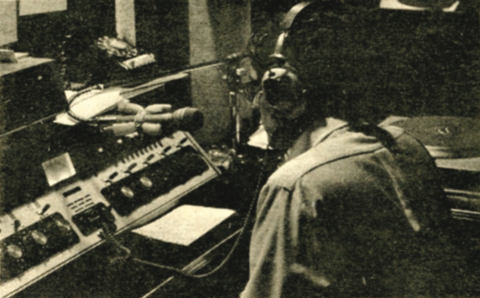 Capping off a nearly decade-long battle between administrators and Georgetown’s student radio station, University President Rev. Tim Healy, S.J., sold all of the equipment required to operate WGTB and its signal to the University of the District of Columbia (UDC) for $1. The battle began when the university ordered WGTB to cease transmission in 1971 because the station’s new, more powerful transmitter was interfering with scientific research on campus. Over the next several years, WGTB butted heads with the administration over student broadcasters’ far-left wing stances on the Vietnam War and other social issues. They also ran into trouble with the Federal Communications Commission for playing music with explicit content. UDC acquired the station the next year and sold the signal in 1997 to C-SPAN for $25 million.
Capping off a nearly decade-long battle between administrators and Georgetown’s student radio station, University President Rev. Tim Healy, S.J., sold all of the equipment required to operate WGTB and its signal to the University of the District of Columbia (UDC) for $1. The battle began when the university ordered WGTB to cease transmission in 1971 because the station’s new, more powerful transmitter was interfering with scientific research on campus. Over the next several years, WGTB butted heads with the administration over student broadcasters’ far-left wing stances on the Vietnam War and other social issues. They also ran into trouble with the Federal Communications Commission for playing music with explicit content. UDC acquired the station the next year and sold the signal in 1997 to C-SPAN for $25 million.
Apr. 2, 1984
Georgetown wins first (and only) men’s basketball championship
In Coach John Thompson Jr.’s twelfth season, the Hoyas finished their 1983-84 season with a 34-3 record, a Big East 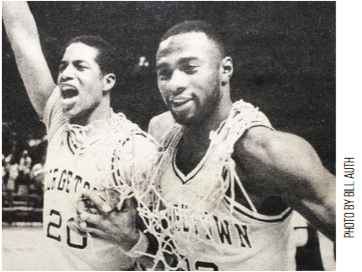 regular season and tournament championship, and a national championship. The Hoyas defeated Houston University 84-75 in Seattle’s Kingdome to win the title game. Freshman Reggie Williams led Georgetown with 19 points in a contest that featured two of the best centers to ever play the game: Houston’s Hakeem Olajuwon and Patrick Ewing (COL ’85), who was named the tournament’s MVP. The victory over the famed “Phi Slama Jama” Houston team was nestled between the heartbreaks of losing the championship game to the Michael Jordan-led University of North Carolina in 1982 and Villanova in 1985.
regular season and tournament championship, and a national championship. The Hoyas defeated Houston University 84-75 in Seattle’s Kingdome to win the title game. Freshman Reggie Williams led Georgetown with 19 points in a contest that featured two of the best centers to ever play the game: Houston’s Hakeem Olajuwon and Patrick Ewing (COL ’85), who was named the tournament’s MVP. The victory over the famed “Phi Slama Jama” Houston team was nestled between the heartbreaks of losing the championship game to the Michael Jordan-led University of North Carolina in 1982 and Villanova in 1985.
Jan. 11, 1988
Supreme Court rules for Gay People of Georgetown University
The U.S. Supreme Court ruled that Georgetown had to provide LGBTQ students equal access to university funding and facilities. The Student Senate had initially approved funding for Gay People of Georgetown University (GPGU) in 1979, but it was revoked, leading to the lawsuit. The university requested that the Supreme Court delay an order from the D.C. Court of Appeals requiring Georgetown to recognize GPGU under the District Human Rights Act. Georgetown alumnus Antonin Scalia (COL ’57) abstained from the vote, and the Court decided that the university did not have to endorse gay student groups but must provide them with the same access to funding and university space as other student organizations. This remained the extent of the university’s support until they hired a part-time LGBTQ services coordinator in 2002.
Feb. 9, 1988
Stewards exposed
The Society of Stewards of Georgetown College, a secret, all-male fraternal order, was publicly disclosed when Rev. Joseph Durkin, S.J., the group’s moderator, wrote a letter to The Hoya denouncing the group’s exclusion of women and minorities. “I stand before you all today and say that I am vehemently against the Stewards,” said Rosie Hidalgo (COL ’88), a student speaking against the society at a public forum held after Durkin’s letter. “It’s like a cancer. Unless we stop it now, it will penetrate deeper and deeper into every organization on campus.” A number of prominent students, from the editor-in-chief of The Hoya to GUSA senators, were outed as members. Within the week, a spokesperson for the group announced that it would be dissolved, but the society was restarted a few years later.
Feb. 22, 1991
GU Choice receives club recognition
GU Choice, the original name of H*yas for Choice, was granted university recognition by then-Dean of Student Affairs John DeGioia on the condition that the group only promote discussion and not advocate for reproductive rights. The decision upset many members of the Georgetown community. One group, the Georgetown Ignatian Society, brought a canon lawsuit to then-Archbishop of Washington Cardinal James Hickey to have the university stripped of its Catholic status, a power only the Vatican has. Amidst this opposition and accusations the group had advocated for pro-choice activities, DeGioia revoked the club’s funding in April 1992. University President Rev. Leo O’Donovan, S.J., allowed the group to operate on campus but without university funding.
Nov. 3, 1992
Georgetown alumnus Bill Clinton elected president
Governor of Arkansas Bill Clinton (SFS ’68) defeated George H.W. Bush and independent candidate Ross Perot with 370 electoral votes and 43 percent of the popular vote. The Voice’s Election Day coverage spanned from informally polling (read: 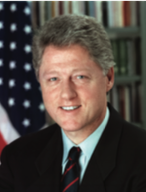 accosting) voters outside the Carlos Rosario Adult Education Center to pestering student political leaders at the election watch parties on campus. College Republicans President Jay Murphy (MSB ’94) told the Voice that his club was taking the results in stride. “It’s not life and death stuff,” he said. “If you’re not having fun, then it’s not worth doing.” Clinton served two terms as president, marked by both success and scandal. Since leaving office, he has visited and spoken at Georgetown numerous times and is one of the university’s most renowned alumni.
accosting) voters outside the Carlos Rosario Adult Education Center to pestering student political leaders at the election watch parties on campus. College Republicans President Jay Murphy (MSB ’94) told the Voice that his club was taking the results in stride. “It’s not life and death stuff,” he said. “If you’re not having fun, then it’s not worth doing.” Clinton served two terms as president, marked by both success and scandal. Since leaving office, he has visited and spoken at Georgetown numerous times and is one of the university’s most renowned alumni.
Jul. 1, 2001
John DeGioia becomes first lay president of Georgetown University
John DeGioia (COL ’79) was inaugurated as Georgetown’s 48th president, succeeding O’Donovan and becoming the first layperson to run any of the country’s Jesuit colleges and universities. Having earned his bachelor’s and Ph.D. from the
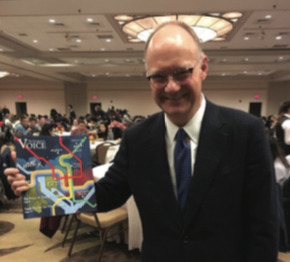
We like this photo the best.
university, DeGioia also served as senior vice president and dean of student affairs. His inauguration sparked discussions on the tension between Georgetown’s identity as an academic institution and its position as the oldest Catholic university in the country. DeGioia said he has tried to balance the conflict between those identities throughout his tenure. Still in the position, he is the longest-serving president in the school’s history.
Aug. 26, 2008
LGBTQ Resource Center opens
Throughout 2007, students advocating for LGBTQ interests launched a series of campaigns in response to hate crimes on campus. They participated in town halls with university President John DeGioia to fight for more support on campus. Because of the work and dedication of many student activists who collaborated with the university, the LGBTQ Resource Center opened its doors and has since adopted a significant role in university life, representing LGBTQ interests, offering support systems for students, and hosting guest lectures. Since its founding, the Resource Center has also received support from Georgetown Campus Ministry in its mission.
Click here for the biggest news of the last decade!


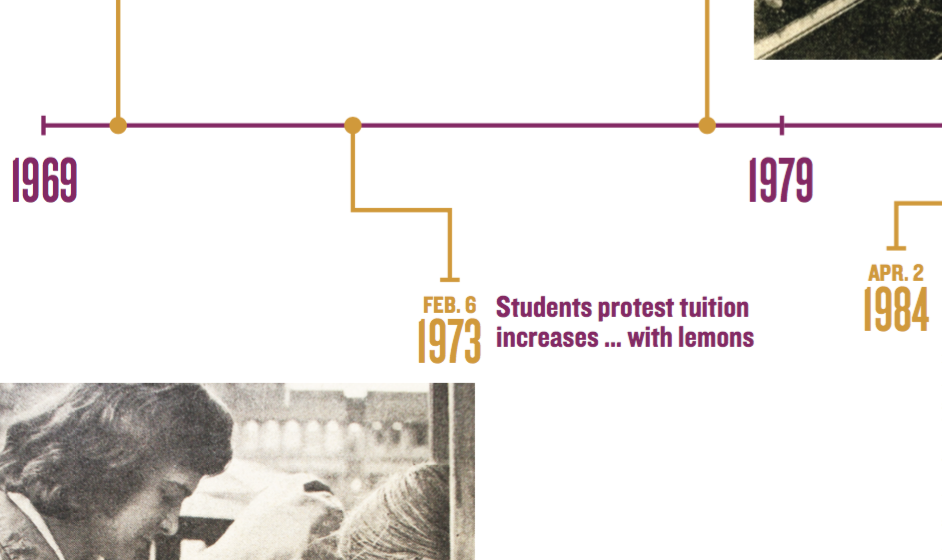
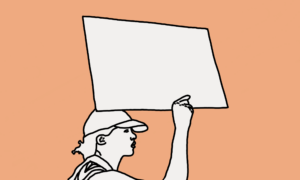
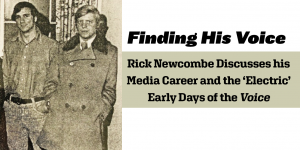
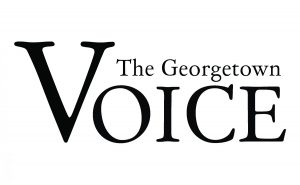
[…] college radio ownership changes were also illuminating to me. A string of controversies led to the $1 sale of Georgetown University’s WGTB license and equipment in 1978. In one of the oddest tales yet, University of Bridgeport was taken over by the Moonies, leading to […]
[…] massacre of student protestors at Kent State University by the National Guard. The Student Senate began the strike, calling for a two-day boycott of classes. Following those two days, faculty […]